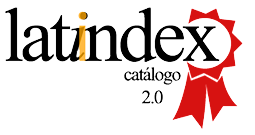Associated factors: motivation, study habits and techniques of first year students in three graduate degrees in UDELAS, Panama campus, 2020
Keywords:
design, study habits, motivation, first admission, educational psychology, study techniquesAbstract
The research developed has the utilitarian purpose of providing the university, especially the Main Campus and the selected careers, with the indexes of the situational state regarding the analysis of the associated factors: motivation, habits and study techniques of first-time freshmen; projecting them qualitatively and quantitatively in the university academic formation they have chosen. The methodology applied had a quantitative approach with a non-experimental design, of descriptive-correlational type allowing the results achieved to be part of a diagnostic evaluation of the population under study in the spheres or variables involved. The data and information obtained were collected through the design and application of a digital instrument, sent to each student's institutional e-mail address, by means of Google Forms. This instrument was validated with experts through the Dean's Office of Research of the university because it is a registered research project. The presentation and analysis of the results is demonstrated by descriptive statistical sketches, percentages, frequencies that were obtained by the SPSS statistical program. These constitute a significant contribution, confirming that the greater the motivation of students, the more they apply study habits and techniques. Likewise, it is considered that a theoretical contribution is made to educational psychology by evaluating the students’ individual characteristics and providing relevant information on how these variables interact in the teaching-learning process, in order to acquire the competencies and skills expected at the end of the process, in this specific case of the careers that are part of the Specialized University of the Americas.
Downloads
Published
How to Cite
Issue
Section
License
Copyright (c) 2022 REDES

This work is licensed under a Creative Commons Attribution-NonCommercial-ShareAlike 4.0 International License.







